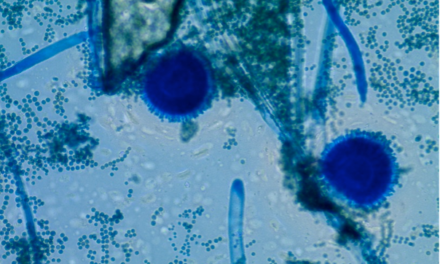A groundbreaking development in personalized medicine
A team of researchers has successfully developed a “gut-on-chip” device that can predict how melanoma patients will respond to immunotherapy, offering new hope for personalized cancer treatment. This innovative miniature model of the human intestine replicates key features of intestinal inflammation and allows for a non-invasive method to assess patient responses before treatment. The study detailing this advancement has been published in Nature Biomedical Engineering.
The Gut-Immunotherapy Connection
It has long been recognized that the gut microbiota plays a crucial role in immunotherapy outcomes. However, due to the limitations of animal models, researchers have struggled to study these interactions in a way that accurately mirrors human physiology. Colonoscopies and biopsies are impractical for melanoma patients undergoing immunotherapy, making it difficult to analyze gut-related side effects, such as intestinal inflammation, which often forces patients to halt treatment.
This challenge prompted the research team to apply “organ-on-chip” technology to the colon, developing a system that closely mimics the human gut environment.
The Innovation Behind Gut-on-Chip
The device is based on the patented uBeat technology, originally developed at Politecnico di Milano for cardiac research but later adapted to simulate joint biomechanics. Now, researchers have utilized it to recreate peristaltic bowel movement, a crucial factor in gut function.
“The continuous movements generated by uBeat enable us to differentiate major intestinal populations from human organoids, thus reproducing a highly realistic environment on a chip,” explained Marco Rasponi, Full Professor at the Department of Electronics, Informatics, and Bioengineering at Politecnico di Milano. “This opens promising prospects for humanized in vitro models, potentially reducing the need for animal testing.”
Predicting Treatment Response
Lead author Mattia Ballerini noted that their findings indicate a strong link between gut microbiota composition and immunotherapy effectiveness. Patients who do not respond to immunotherapy tend to have a highly pro-inflammatory gut microbiome, which damages the epithelial barrier and produces immune-regulating molecules.
“By analyzing fecal samples on our gut-on-chip, we can predict whether a patient is likely to respond positively to immunotherapy. This allows us to stratify patients and administer treatment only to those most likely to benefit from it,” Ballerini stated. “This approach not only improves patient quality of life but also reduces unnecessary healthcare costs.”
A Step Toward Broader Applications
Luigi Nezi, Team Leader at the Department of Experimental Oncology at the European Institute of Oncology, emphasized the potential of this technology beyond melanoma treatment.
“We are now using this system to study immunotherapy responses in other cancers, where patient benefits have been less significant so far. Our goal is to open new avenues for microbiota-based treatments, broadening access to effective therapies.”
Collaborative Research Effort
The study involved researchers from the European Institute of Oncology and Politecnico di Milano, coordinated by Nezi and Rasponi. Their work marks a significant step toward integrating personalized medicine into oncology, with the potential to revolutionize cancer treatment strategies.
For further details, refer to the published study: Mattia Ballerini et al, A gut-on-a-chip incorporating human fecal samples and peristalsis predicts responses to immune checkpoint inhibitors for melanoma, Nature Biomedical Engineering (2025). DOI: 10.1038/s41551-024-01318-z.
Disclaimer:
The information presented in this article is based on scientific research and is intended for informational purposes only. It should not be interpreted as medical advice or a substitute for professional healthcare consultation. Readers are encouraged to discuss any medical concerns with their healthcare providers.












